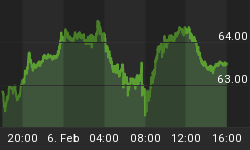While much has been made recently of the President's unconstitutional appointment of Richard Cordray to be director of the Consumer Financial Protection Bureau (CFPB), lost in the hubbub has been any discussion of the unconstitutionality of, or the need for, the CFPB itself. Proponents of the CFPB claim that this new bureaucracy will help consumers by protecting them from fraudulent activity. In reality, it will only expose consumers to more financial harm.
Housed within the unconstitutional Federal Reserve, and funded not through Congressional appropriations but through the Federal Reserve's interest revenue off the trillions of dollars of US government debt it holds, the structure of the CFPB ensures that it is run by unelected, unaccountable bureaucrats, with no effective oversight from Congress. Given broad power to regulate the activities not only of banks, but also of any other entity which the government deems offers a financial product, there is almost no limit to the scope of financial activities which the CFPB can oversee.
Giving impetus to the CFPB's creation was the poor reputation of Wall Street banks and financial firms that developed as a result of the financial crisis. Banks which received trillions of dollars of taxpayer-funded bailouts turned around and shafted their customers by foreclosing on homes, raising credit card interest rates, and introducing numerous new fees.
But rather than keeping Wall Street in check as its proponents allege, the CFPB will end up placing further restrictions on the ability of Main Street Americans to engage in productive financial endeavors. Current law already allows only the richest Americans to invest in potentially lucrative ventures such as hedge funds because such investments are deemed to be "too risky" for the average American to invest in. The government in its paternalistic wisdom treats American investors as too stupid to know what to do with their own money, and "protects" them, supposedly, by keeping them poorer than they otherwise would be. We can expect even more of this once the CFPB is running in full stride.
The CFPB will further harm consumers by encouraging them to use only financial products which have received the Bureau's approval. Many consumers will assume that these products are "safe", and will fail to engage in their own due diligence, with predictably unfortunate results. We have seen this with the stock markets and the cases of Bernie Madoff and Allen Stanford, where investors trusting the SEC to prevent fraud ended up suffering huge losses. Social Security is a similar case, in which millions of people placed their trust in the government to take care of them in their old age. The inability of Social Security to pay its future obligations is well understood but ignored, and millions of Americans will likely once again learn the hard way that the government cannot be taken at its word.















